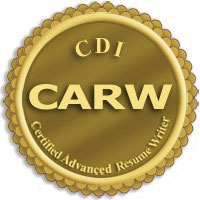Brenda Bernstein
Certified Executive Resume Master (CERM) and Certified Master Resume Writer (CMRW)
Brenda is one of only a handful of executive resume writers in the world to hold this double certification. A compelling speaker and the #1 best-selling author of How to Write a KILLER LinkedIn Profile, Brenda has worked with hundreds of professionals and executives who understand the value of effectively written career documents.
Brenda, who oversees every executive project, holds an English degree from Yale and a law degree from NYU.
Stephen
Academy Certified Resume Writer (ACRW), Certified Professional Resume Writer (CPRW) – Executive Resumes, IT Resumes, Operations Resumes, Sales & Marketing Resumes, Pharmaceutical & Biotech Resumes, Finance Resumes, LinkedIn Profiles, Executive Bios, Interview & Job Search Coaching
Stephen is a best-selling author that has been featured in numerous industry and business publications for his expertise in resume writing, branding, and career strategy development. He has helped thousands of professionals and executives navigate today’s challenging job market. Stephen’s experience in sales, operations, and service delivery leadership at a GE Capital Company helps him to understand how hiring decisions are made.
Stephen holds an MBA from Villanova University and a BS degree from the University of Maryland. During his time with GE, Stephen earned the Six Sigma Black Belt Certification. In the career services field, Stephen possesses the ACRW, CPRW, OPNS, and MCS credentials. He currently serves on the Board for the Career Thought Leaders.
Ashley
Certified Master Resume Writer (CMRW) – Resumes, Executive Resumes, IT Resumes, and LinkedIn Profiles
A top award-winning Certified Master Resume Writer and Personal Branding Strategist, Ashley has devoted more than a decade to improving resume writing standards around the globe. Starting out as a national IT recruiter in 2005, she now blends her love of writing and graphic design with her acumen in recruiting to craft sophisticated, visually impactful and content-rich personal branding materials. Her career marketing documents have helped global executives in the Fortune 500 command the attention of companies and boards across a range of industries, including Biotechnology, Technology, and Finance. A Boston native now living in South Africa, she is a pioneer in the resume industry throughout the African continent. She has been featured as a speaker as well as in national publications as Africa’s only Certified Master Resume Writer.
Holly
Resume Writer, Editor, Certified Career Transitions Coach (CCTC) – Executive Resumes, Mid-Level Resumes, IT/Engineering Resumes, LinkedIn Profiles, Career Transition & Interview Coaching, Copywriting
As a career coach, Holly strategizes with mid-career professionals to renew their enthusiasm and find work they love. As a resume and LinkedIn profile writer, Holly particularly enjoys working with marketing, nonprofit, and education/higher education professionals and executives, as well as IT/Engineering professionals. She also writes marketing communications to engage new and existing clients for small businesses.
Holly understands career transition through experience and education. After earning an M.A. in Training and Development from The Ohio State University, she worked for over 20 years with Fortune 500 companies, nonprofits, and higher education. More recently, she studied resume writing with the National Resume Writers’ Association and copywriting and marketing through American Writers and Artists, Inc., Freelance Writers’ Den, and Novice to Advanced Marketing System (NAMS). Holly is a Certified Career Transitions Coach through Coach Training Alliance, an International Coach Federation Approved Program. She lives on a pond in Florida where she relaxes with lizards, turtles, and ducks. She also enjoys singing, painting, and being with close friends and family.
Posey
Certified Advanced Resume Writer (CARW) – DISC Profile Assessments, Career Coaching, LinkedIn Profiles
Posey is a skilled resume writer and career strategist who makes an immediate personal connection with each client, from new grads to executives. She is known for her creative solutions and professional flair; Posey’s work gets clients noticed. Specializing in military, federal, academic, business, medical, hospitality and creative resumes, Posey is an internationally certified advanced resume writer (CARW) as well as an authorized DISC and PIAV administrator and Behavior and Values Coach. She is also a Certified Master Trainer (CMT) and Certified Instructional Systems Designer (CISD) with a BS degree in Safety Engineering.
Jeanne
Extraordinary Virtual Assistant Providing Client Support for The Essay Expert
Jeanne is a Jane of All Trades and a Master of Business Support. She often acts as the face of The Essay Expert, while at the same providing indispensable behind-the-scenes support. Jeanne maintains her tech savvy by staying up to date with current online programs and services available to small businesses such as her own. With 8 years of hands-on experience in all facets of client services, marketing and business programs, as well as a background in web environment, she has helped career services industry professionals across the US to expand and thrive, continually receiving rave reviews from her clients for her dedication, integrity, professionalism and great work.



















